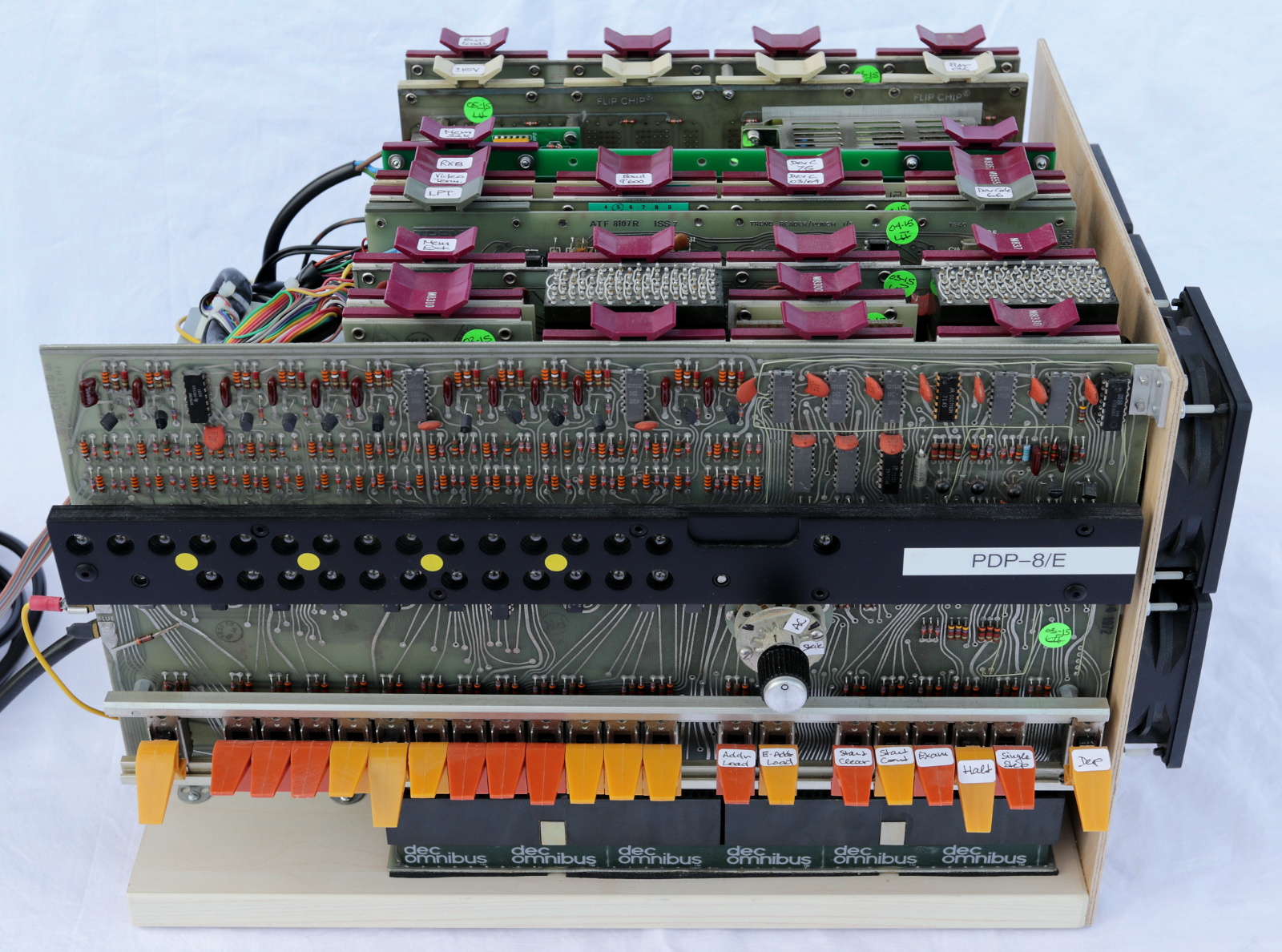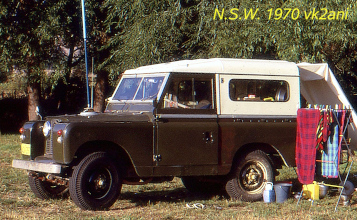My current DEC PDP-8 Minicomputers
The last real PDP8 system I still had was a working → PDP8/A with 8/E processor, dual RL02 disk drives
and RX01 dual
floppy drives. It has now found a new home in Berlin.
In addition to this I built a "breadboard" version on a PDP8/E from spare modules, a new → 32k semiconductor memory and modern power supplies,
that is attached
to a RX01 dual drive, a → PC parallel printer and - using a → VT-6 converter - to a PC keyboard and monitor.
The machine was recently
modified with a real VT100 and a DEC Letterwriter 100 printer for the → display at VCFE/CH 17.

My Breadboard PDP8/E built in 2015 as shown in 2017 → click on picture to enlarge.
since much improved with a nice replica front-panel: → see the new picture here!
DEC and DECUS PDP8 Software
There was/is a lot of DEC and DECUS software here as well as some drivers/miniprograms on various media. Most of the RK05 stuff was copied on RL02 disks and disks and floppies were used with
OS/8 V3D, OS/8 V40 and OS78. To archive this antique collected PDP8 software all my RK05 disk were given to the → Informatik Museum Uni-Stuttgart and have since been read, archived and put on the web. Many thanks for the professional work by Klemens Krause and his team!
All the programs, that include OS8 sources and complete V3D and V40 systems, may currently be found →
here. Copy the link and enter it into an ftp client (such as → FileZilla), no password is required. The site is owned by informatik.uni-stuttgart.de and the hosting is much appreciated!
The remaining large number of DECtapes with older versions of OS/8 and other programs as well as papertape software for 8/I has also been given to the Informatik Museum Uni-Stuttgart.
PDP-8/I Interface for an RX01 Floppy Drive
After experiencing problems with my 3M DECtapes - tapes are an interesting subject - I considered using a floppy drive like the 8/E with the M8357 RX8 card. As my 8/I used a TC08 controller
for the TU56 and posibus logic levels, it was possible to make use of empty slots there suitable for the quad card. The remaining logic was built from standard M-type modules used in the 8/I
creating a subset of the OMNIBUS, no data break is required. The details are covered in the .pdf document →"PDP8/I to OMNIBUS (Subset) Interface
for RX8"
The challenge was providing the timing signals, they differ between the 8/I and the 8/E, esp. TP3** and I/O PAUSE which had to be generated. On page 8 of the .pdf document this timing
structure is shown. The system has seen many years of successful operation.
DECtapes for the TU56
Some of my older tapes show deterioration, which best manifests itself when a tape is used on the TU56 as system tape. As, when running OS/8, the tape has to go back very frequently to read
the system area and the directory, these tapes fail after comparatively short use. By cutting off a stretch of tape, then reformatting it and copying the system back onto it, one can prove that
it is indeed the first sectors of the tapes that fail.
Trying to overcome this problem I purchased some 3M professional broadcast video tape in cassettes and put it on the DECtape reels. As I had no working TU56, I asked an operator from the UK to
test it for me. He could read/write my old tapes ok but could not make my video tape work. It appears that the magnetic properties of the tape are too different. Now - as my TU56 and all tapes
have moved on - the experts at the → Informatik Museum Uni-Stuttgart will try to make
sense of this observation and perform more tests and analysis. Hopefully a solution to the deterioration problem thus can be found.
